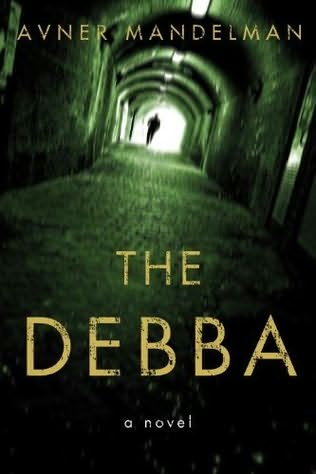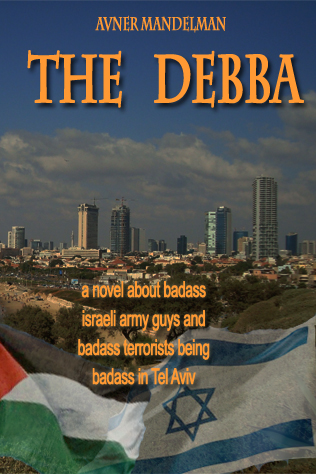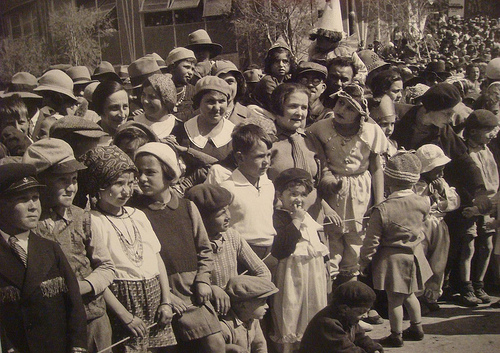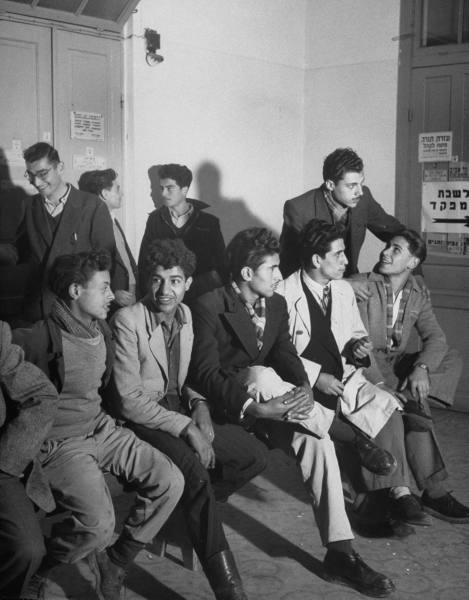Book Review: The Debba (with Vicki-suggested cover art!)
(Full disclaimer: Thank you to Other Press for sending me a copy of the book.)
I always judge books by their covers. I have no remorse over this, and it’s lead me to great selections. Based on simply cover alone, I surmised that The Debba is a spy thriller, much like The Moscow Rules, which would result in someone lying facedown in an unmarked sewer in Cairo.
So, for the next release, I recommend a cover change that will appeal more to the author’s intended demographic:
Now there is something that draws my eye immediately.
Fortunately, the book turned out to be a real page turner and an incredible philosophical exercise in understanding the Israeli-Palestinian conflict. I loved it, and I think it’s an important read for anyone interested in engaging on debate about hamatzav.
First things first: If you have a set stance on Israel/Palestine that you will never change your mind on, you will hate this book. It will drive you crazy because it refuses to take sides and offer simple black-white messages and consists of multiple twists and turns. In general, I think there’s a lot to take away and to discuss long after you finish reading it.
The book starts,in 1977, with a phone call to David Starkman, ex-Israeli living with his Polish girlfriend in Canada, having renounced his Israeli citizenship, while having nightmares dating back to his army service. His father, who he has not talked to in seven years, has been murdered in Tel Aviv. Despite his extreme discomfort with going back to Israel, he books a ticket on the next flight and is soon in the country he hasn’t been to in almost a decade to figure out what happened to his father.
The descriptions of Israel are spot-on without being cloying and obvious and, I think, meant to make the reader homesick. When David first gets off the plane late at night, he describes, “In a flash, the nocturnal smells converged on me like starved furies. Orange blossoms; the salty smell of the sea; the dust; the hot tarmac. I steeled myself and walked on. The hot wind ruffled my hair.”
When he lands, he stays with his army friend, Ehud and his girlfriend, Ruti, with whom David shares a past history (the prehistory, as the book often describes). “An ancient Mercedes cab, its four doors dented, took me to Ibn Gvirol Street. The driver, a muscular man with a close-cropped head, assiduously avoidd looking at me. I paid him…and got off at the corner of Eliyahu Street. Darkness enveloped everything, thick and fragrant like breath. The green glow of the streetlamps seeped through the tzaftzafa trees; white bedsheets, flapping slowly like ghosts, hung on clotheslines. A gray cat slunk into a yard. Nothing seemed to have changed since I left.”
It’s obvious that David loves the country of Israel while at the same time hating the army top-secret missions he was implicated in that caused him to leave. Tel Aviv is described perfectly: Mediterranean, worn, dusty, hot, and, yet, completely loveable. The city is as much a character in the book as any of the others Mandelman creates- Amzaleg, the Sephardic police detective who helps David, David’s uncle Mordechai, and the ever-growing gangs of Shin Bet, internal security services.
As David begins to try to understand who killed his father, the police become less friendly and tell him not to get involved, to go back to Canada. This makes him want to press further, and he discovers that his father’s death is possibly related to a play he co-wrote with Rubin Paltiel, called The Debba, which sparked Israeli-Arab riots the first and only time it was staged in the 1940s in Haifa due to its controversial content regarding Israeli-Arab relations. His father’s will stipulates that the play must be put on again in order for David to receive the money, and somehow, everyone around him discourages it. The story revolves around the mystery of the play and David’s role in it, as well as his father’s role in the 1948 War for Independence and in killing an Arab terrorist, Abu Jalood, and unravels quite satisfactorily at the end.
I loved this book for many reasons, even though I hate mystery novels, stuff with murder in it, and books that try to wrap up Israel in a couple hundred pages. First is that the ending is a complete surprise and really left me thinking about the book for several days afterwards. Second is that it gives an inside look at Israel in the late 1970s and early 1980s, as well as the days of the Israeli War of Independence, and it really leads you to believe that nothing is solid in history.
When I first learned Israeli history, I learned that all of the first pioneers to Israel were brave and strong, building the Jewish homeland, and there was no room for reinterpretation. This is certainly not the case: the pioneers were not automatons and had human emotions, some of which led to hard decisions, and this kind of behavior is shown clearly in the book.
I also loved this book because it really made me feel like I was in Israel during that time period. The author’s clever use of inserting Hebrew and Arabic phrases throughout the text to get just enough effect and not oversaturate with stereotype, as well as the descriptions of the fresh cucumbers and sitting at Cafe Kassit really opened up Israel of the 1970s for me.
It’s true that, without at least a bit of knowledge about Israeli history, you could get lost in some of the terminology and references. But discovering is always half the fun.
[(Full disclaimer: Thank you to Other Press for sending me a copy of the book.)
I always judge books by their covers. I have no remorse over this, and it’s lead me to great selections. Based on simply cover alone, I surmised that The Debba is a spy thriller, much like The Moscow Rules, which would result in someone lying facedown in an unmarked sewer in Cairo.
So, for the next release, I recommend a cover change that will appeal more to the author’s intended demographic:
Now there is something that draws my eye immediately.
Fortunately, the book turned out to be a real page turner and an incredible philosophical exercise in understanding the Israeli-Palestinian conflict. I loved it, and I think it’s an important read for anyone interested in engaging on debate about hamatzav.
First things first: If you have a set stance on Israel/Palestine that you will never change your mind on, you will hate this book. It will drive you crazy because it refuses to take sides and offer simple black-white messages and consists of multiple twists and turns. In general, I think there’s a lot to take away and to discuss long after you finish reading it.
The book starts,in 1977, with a phone call to David Starkman, ex-Israeli living with his Polish girlfriend in Canada, having renounced his Israeli citizenship, while having nightmares dating back to his army service. His father, who he has not talked to in seven years, has been murdered in Tel Aviv. Despite his extreme discomfort with going back to Israel, he books a ticket on the next flight and is soon in the country he hasn’t been to in almost a decade to figure out what happened to his father.
The descriptions of Israel are spot-on without being cloying and obvious and, I think, meant to make the reader homesick. When David first gets off the plane late at night, he describes, “In a flash, the nocturnal smells converged on me like starved furies. Orange blossoms; the salty smell of the sea; the dust; the hot tarmac. I steeled myself and walked on. The hot wind ruffled my hair.”
When he lands, he stays with his army friend, Ehud and his girlfriend, Ruti, with whom David shares a past history (the prehistory, as the book often describes). “An ancient Mercedes cab, its four doors dented, took me to Ibn Gvirol Street. The driver, a muscular man with a close-cropped head, assiduously avoidd looking at me. I paid him…and got off at the corner of Eliyahu Street. Darkness enveloped everything, thick and fragrant like breath. The green glow of the streetlamps seeped through the tzaftzafa trees; white bedsheets, flapping slowly like ghosts, hung on clotheslines. A gray cat slunk into a yard. Nothing seemed to have changed since I left.”
It’s obvious that David loves the country of Israel while at the same time hating the army top-secret missions he was implicated in that caused him to leave. Tel Aviv is described perfectly: Mediterranean, worn, dusty, hot, and, yet, completely loveable. The city is as much a character in the book as any of the others Mandelman creates- Amzaleg, the Sephardic police detective who helps David, David’s uncle Mordechai, and the ever-growing gangs of Shin Bet, internal security services.
As David begins to try to understand who killed his father, the police become less friendly and tell him not to get involved, to go back to Canada. This makes him want to press further, and he discovers that his father’s death is possibly related to a play he co-wrote with Rubin Paltiel, called The Debba, which sparked Israeli-Arab riots the first and only time it was staged in the 1940s in Haifa due to its controversial content regarding Israeli-Arab relations. His father’s will stipulates that the play must be put on again in order for David to receive the money, and somehow, everyone around him discourages it. The story revolves around the mystery of the play and David’s role in it, as well as his father’s role in the 1948 War for Independence and in killing an Arab terrorist, Abu Jalood, and unravels quite satisfactorily at the end.
I loved this book for many reasons, even though I hate mystery novels, stuff with murder in it, and books that try to wrap up Israel in a couple hundred pages. First is that the ending is a complete surprise and really left me thinking about the book for several days afterwards. Second is that it gives an inside look at Israel in the late 1970s and early 1980s, as well as the days of the Israeli War of Independence, and it really leads you to believe that nothing is solid in history.
When I first learned Israeli history, I learned that all of the first pioneers to Israel were brave and strong, building the Jewish homeland, and there was no room for reinterpretation. This is certainly not the case: the pioneers were not automatons and had human emotions, some of which led to hard decisions, and this kind of behavior is shown clearly in the book.
I also loved this book because it really made me feel like I was in Israel during that time period. The author’s clever use of inserting Hebrew and Arabic phrases throughout the text to get just enough effect and not oversaturate with stereotype, as well as the descriptions of the fresh cucumbers and sitting at Cafe Kassit really opened up Israel of the 1970s for me.
It’s true that, without at least a bit of knowledge about Israeli history, you could get lost in some of the terminology and references. But discovering is always half the fun.
](http://www.amazon.com/Debba-Avner-Mandelman/dp/1590513703)



